Ditapis dengan
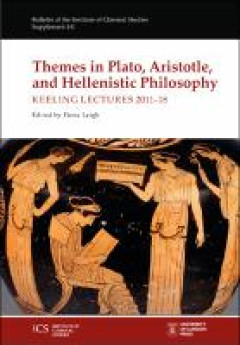
E-book Themes in Plato, Aristotle, and Hellenistic Philosophy
The present volume collects together papers based on the annual Keeling Memorial Lecture in ancient philosophy given at University College London, over 2011-18 (and one from 2004, previously unpublished). It contains contributions to theoretical as well as practical ancient philosophy, and in some cases, to both. Susanne Bobzien argues that Frege plagiarised the Stoics in respect of logic, Gail…
- Edisi
- -
- ISBN/ISSN
- 9781905670932
- Deskripsi Fisik
- 262 halaman
- Judul Seri
- -
- No. Panggil
- 101 LEI t

Chicken Soup for the Woman's Soul: Musim Semi di Paris
Ada banyak cara untuk melukiskan seorang wanita: seorang anak, ibu, nenek, istri, pacar, wanita karier, sahabat, murid, guru, bos. Tetapi, persamaan yang tak bisa dilepaskan dari para wanita ini adalah: mereka memiliki hati untuk merasakan kelembutan cinta, menempa persahabatan seumur hidup, mengejar karier yang dipilih, membentuk kehidupan baru, bertanggung jawab tanpa kenal lelah atas pekerja…
- Edisi
- Cet. 2
- ISBN/ISSN
- 9792226117
- Deskripsi Fisik
- xii, 208 hlm; 15 x 23 cm
- Judul Seri
- Chicken Soup for the Woman's Soul
- No. Panggil
- 155.25 CAN c
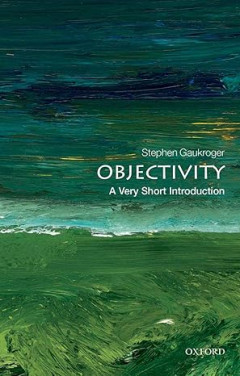
E-book Objectivity: A Very Short Introduction
Is objectivity possible? Can there be objectivity in matters of morals? What would a truly objective account of the world be like? Is everything subjective, or relative? Are moral judgments objective or culturally relative? This Very Short Introduction demonstrates that there are a number of common misunderstandings about what objectivity is, and explores the theoretical and practical problems …
- Edisi
- -
- ISBN/ISSN
- 9780199606696
- Deskripsi Fisik
- 258 halaman
- Judul Seri
- -
- No. Panggil
- 153.4 GAU o
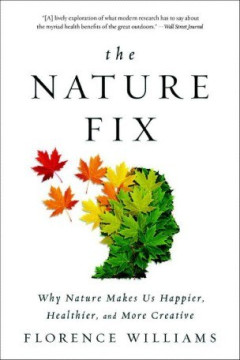
The Nature Fix
From forest trails in Korea, to islands in Finland, to eucalyptus groves in California, Florence Williams investigates the science behind nature's positive effects on the brain. Delving into brand-new research, she uncovers the powers of the natural world to improve health, promote reflection and innovation, and strengthen our relationships. As our modern lives shift dramatically indoors, these…
- Edisi
- Cet. 1
- ISBN/ISSN
- 9780393355574
- Deskripsi Fisik
- 290 hlm; 14 x 21 cm
- Judul Seri
- -
- No. Panggil
- 155.9 WIL t
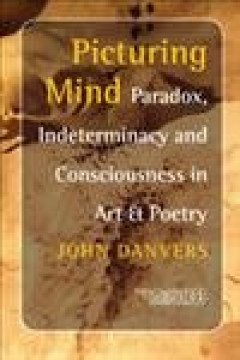
E-book Picturing Mind: Paradox, Indeterminacy And Consciousness in Art & Poetry
In this book the author takes an unusual multi-disciplinary approach to debates about contemporary art and poetry, ideas about the mind and its representations, and theories of knowledge and being. Arts practices are considered as enactments of mind and as transformative modes of consciousness. Ideas drawn from poetics, philosophy and consciousness studies are used to illuminate the conceptual …
- Edisi
- -
- ISBN/ISSN
- 9789042018099
- Deskripsi Fisik
- 369 halaman
- Judul Seri
- -
- No. Panggil
- 128.2 DAN p
E-book Theories of the Chakras: Bridge to Higher Consciousness
It is an outstanding book from both the scientific and spiritual points of view. It is the unique record of the pioneering experiments which presents clear, electro-physiological evidence of the existence of the network of chakras and nadis which form the infra-structure of the subtle energies existing in the pranic and psychic dimensions, which underlie and activate the physical, material body…
- Edisi
- -
- ISBN/ISSN
- 9788178220239
- Deskripsi Fisik
- 287 halaman
- Judul Seri
- -
- No. Panggil
- 133.892 MOT t
E-book The Talent Code: Greatness Isn't Born. It's Grown. Here's How.
What is the secret of talent? How do we unlock it? In this groundbreaking work, journalist and New York Times bestselling author Daniel Coyle provides parents, teachers, coaches, businesspeople—and everyone else—with tools they can use to maximize potential in themselves and others. Whether you’re coaching soccer or teaching a child to play the piano, writing a novel or trying to impro…
- Edisi
- -
- ISBN/ISSN
- 9780553906493
- Deskripsi Fisik
- 257 halaman
- Judul Seri
- -
- No. Panggil
- 153.9 COY t
E-book Karl Popper, Science and Enightenment
Karl Popper is famous for having proposed that science advances by a process of conjecture and refutation. He is also famous for defending the open society against those he saw as its arch enemies – Plato and Marx.Popper’s contributions to thought are of profound importance, but they are not the last word on the subject. They need to be improved. My concern in this book …
- Edisi
- -
- ISBN/ISSN
- 9781787350397
- Deskripsi Fisik
- 392 hlm
- Judul Seri
- -
- No. Panggil
- 146.44 MAX k

E-book The Consciousness Paradox: Consciousness, Concepts, and Higher-Order T…
A defense of a version of the higher-order thought (HOT) theory of consciousness with special attention to such topics as concepts and animal consciousness. Consciousness is arguably the most important area within contemporary philosophy of mind and perhaps the most puzzling aspect of the world. Despite an explosion of research from philosophers, psychologists, and scientists, attempts to expl…
- Edisi
- -
- ISBN/ISSN
- -
- Deskripsi Fisik
- Bradford Book
- Judul Seri
- -
- No. Panggil
- 127 GEN t
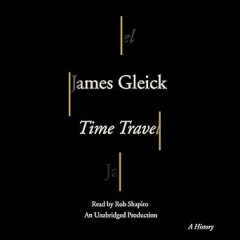
E-book Time Travel: A History
Gleick's story begins at the turn of the 20th century, with the young H. G. Wells writing and rewriting the fantastic tale that became his first book, an international sensation: The Time Machine. A host of forces were converging to transmute the human understanding of time, some philosophical and some technological - the electric telegraph, the steam railroad, the discovery of buried civilizat…
- Edisi
- -
- ISBN/ISSN
- -
- Deskripsi Fisik
- 236 halaman
- Judul Seri
- -
- No. Panggil
- 115 GLE t
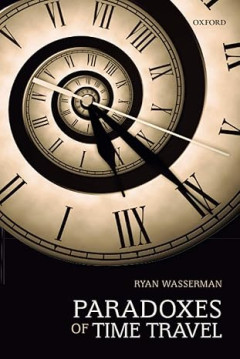
E-book Paradoxes of Time Travel
This volume explores a wide-range of puzzles such as the grandfather paradox, the bootstrapping paradox, and the twin paradox of special relativity. Ryan Wasserman draws out their implications for our understanding of time, tense, freedom, fatalism, causation, counterfactuals, laws of nature, persistence, change, and mereology. Paradoxes of Time Travel is written in an accessible style, and fil…
- Edisi
- -
- ISBN/ISSN
- 9780198793335
- Deskripsi Fisik
- 261 halaman
- Judul Seri
- -
- No. Panggil
- 115 WAS p
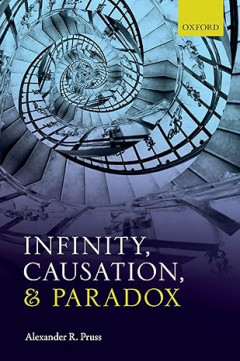
E-book Infinity, Causation, and Paradox
Infinity is paradoxical in many ways. Some paradoxes involve deterministic supertasks, such as Thomson's Lamp, where a switch is toggled an infinite number of times over a finite period of time, or the Grim Reaper, where it seems that infinitely many reapers can produce a result without doing anything. Others involve infinite lotteries. If you get two tickets from an infinite fair lottery where…
- Edisi
- -
- ISBN/ISSN
- 9780198810339
- Deskripsi Fisik
- 222 halaman
- Judul Seri
- -
- No. Panggil
- 110 PRU i
Xuanzé fàngxià, huó zài dangxià = Pilih untuk Melepaskan dan Hiduplah P…
Hanya dengan melepaskan pandangan paranoid Anda, Anda dapat hidup bahagia saat ini. Epicurus pernah menulis: "Manusia merasa terganggu bukan karena benda-benda itu sendiri, melainkan karena pandangannya terhadap benda-benda itu." Memang, alasan mengapa banyak orang tidak bisa hidup bahagia seringkali karena hatinya paranoid dan tidak bisa melepaskan persepsi subjektifnya terhadap banyak orang…
- Edisi
- -
- ISBN/ISSN
- 9789862194904
- Deskripsi Fisik
- 17 x 23 cm
- Judul Seri
- -
- No. Panggil
- 155.25 JIA x

Chicken Soup for the Coffee Lover's Soul : 55 Kisah Inspiratif yang Menguarka…
Sebagian besar para peminum kopi sejati memulai hari dengan cangkir kopi panas-ritual yang dilakukan oleh jutaan orang di seluruh dunia. Daya tarik kopi yang mengepul dan menghirup aroma kuatnya membangkitkan semangat kita untuk menghadapi segala suasana hati dan tantangan hidup. Dan, puncak kenikmatannya adalah ketika mencecap rasanya. Dengan antisipasi terjaga, pencinta kopi mengenali kekenta…
- Edisi
- -
- ISBN/ISSN
- 9789792270662
- Deskripsi Fisik
- viii + 237 hlm; 13.5 x 20 cm
- Judul Seri
- -
- No. Panggil
- 155.25 CAN c
Seni Hidup Bersahaja : 100 Praktik Harian untuk Hidup Tenang dan Bahagia
Sekarang ini, banyak orang telah kehilangan pijakan - mereka cemas dan bingung tentang cara menjalani kehidupan. Itulah sebabnya mereka mencari sesuatu yang luar biasa, dalam upaya mengatur kembali keseimbangan mentalnya. Namun, tetap saja. Bahkan setelah kita menekan tombol "kembali ke pengaturan awal", sesuatu yang luar biasa akan tetap berada di luar kehidupan sehari-hari. Ketika kita kembal…
- Edisi
- -
- ISBN/ISSN
- 9786020631950
- Deskripsi Fisik
- xvi + 208 hlm; 13 x 20 cm
- Judul Seri
- -
- No. Panggil
- 158.1 MAS s
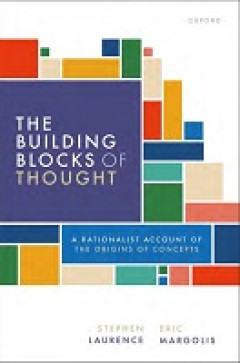
E-book The Building Blocks of Thought: A Rationalist Account of the Origins o…
The human mind is capable of entertaining an astounding range of thoughts. These thoughts are composed of concepts or ideas, which are the building blocks of thoughts. This book is about where all of these concepts come from and the psychological structures that ultimately account for their acquisition. We argue that the debate over the origins of concepts, known as the rationalism-empiricism d…
- Edisi
- -
- ISBN/ISSN
- 9780192898838
- Deskripsi Fisik
- 692 halaman
- Judul Seri
- -
- No. Panggil
- 101 LAU t
E-book Cosmos and Culture : Cultural Evolution in a Cosmic Context
Integrating concepts from philosophical, anthropological, and astrobiological disciplines, Cosmos and Culture begins to explore the interdisciplinary questions of cosmic evolution.
- Edisi
- -
- ISBN/ISSN
- 9780160831195
- Deskripsi Fisik
- 612 halaman
- Judul Seri
- -
- No. Panggil
- 113 DIC c

E-book Virtual Innovation and Support Networks: Exploring the Impact of Virtu…
Virtual Exchange refers to the numerous initiatives and methodologies which engage learners in sustained online collaborative learning and interaction with partners from different cultural backgrounds as part of their study programs and under the guidance of teachers or trained facilitators. This book reports on a large-scale European project, VALIANT (Virtual Innovation and Support Networks fo…
- Edisi
- -
- ISBN/ISSN
- 9783034349239
- Deskripsi Fisik
- 242 halaman
- Judul Seri
- -
- No. Panggil
- 153.6 ODO v
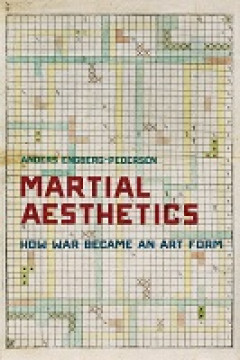
E-book Martial Aesthetics: How War Became an Art Form
The twenty-first century has witnessed a pervasive militarization of aesthetics with Western military institutions co-opting the creative worldmaking of art and merging it with the destructive forces of warfare. In Martial Aesthetics, Anders Engberg-Pedersen examines the origins of this unlikely merger, showing that today's creative warfare is merely the extension of a historical development th…
- Edisi
- -
- ISBN/ISSN
- 9780804799942
- Deskripsi Fisik
- 218 halaman
- Judul Seri
- -
- No. Panggil
- 153.3 ENG m
Simple Thinking About Blood Type 2
Pernahkah kamu merasa tidak diperhatikan oleh orang lain? Pernahkah kamu mendapat luka dari perkataan teman baikmu? Itu semua karena setiap manusia memiliki sifat yang berbeda-beda. Dalam berinteraksi dengan orang lain, tidak ada salahnya kita mencoba mengerti apa yang dirasakan oleh teman dekat ataupun orang lain yang belum kita kenal. Nah, di komik Simple Thinking about Blood Type 2 ini…
- Edisi
- Cet. 5
- ISBN/ISSN
- 9786027742321
- Deskripsi Fisik
- 294 hlm, 14 x 20 cm, ilus.
- Judul Seri
- -
- No. Panggil
- 155.2 PAR s
50 Chinese Wisdoms
50 kebijaksanaan China Klasik yang sangat populer dikemas dan disajikan dengan apik dalam buku ini.Bila Anda membacanya sebagai buku motivasi, kisah-kisahnya akan memberi Anda inspirasi dalam menggeluti kehidupan sehari-hari. Bila Anda membacanya sebagai buku cerita, Anda akan menemukan kisah-kisah singkat yang begitu menarik, cerdik, padat akan pesan moral, dan pasti akan memperkaya batin Anda…
- Edisi
- -
- ISBN/ISSN
- 9792224998
- Deskripsi Fisik
- 160 hlm, 14 x 21 cm
- Judul Seri
- -
- No. Panggil
- 181.11 LEM l

The Best of Chinese Strategies: Memenangkan Kompetisi Bisnis dengan 36 Strate…
Dengan filosofi menghindari kompetisi langsung sebagai cara yang paling cerdik dalam berkompetisi, The Best of Chinese Strategies menawarkan beraegam strategi, seperti 'Indiriect Action, Continuos change startegy, Deception Strategy' dan lain-lain, sehingga anda mempunyai ruang dan gerak untuk memilih salah satu ataupun gabungan strategi yang terbaik, tepat guna, dapat diandalkan, fleksibel seb…
- Edisi
- Cet. 3
- ISBN/ISSN
- 9789792229301
- Deskripsi Fisik
- 202 hlm, 14 x 20,5 cm
- Judul Seri
- -
- No. Panggil
- 174.4 LEM t

My Mother Always Used to Say
Di dalam buku inspirasional dan penuh humor ini, Anna Tochter menghadirkan koleksi lebih dari 300 kalimat yang biasa dikatakan oleh para ibu. Buku ini akan mengingatkan kita bahwa tak seorang pun dapat mengasihi kita melebihi ibu kita,
- Edisi
- -
- ISBN/ISSN
- 9797891266
- Deskripsi Fisik
- 142 hlm, 12 x 16 cm, ilus.
- Judul Seri
- -
- No. Panggil
- 155.4 TOC m

Simple Thinking About Blood Type 3
Pernah mengalami kesulitan memesan makanan ketika golongan darah A, golongan darah B, golongan darah O, dan golongan darah AB berada dalam satu tempat? Bingung karena teman sekamar nggak pernah bersih-bersih? Ingin terlihat baik di depan bos killer? Penasaran mengapa terjadi konflik gara-gara si cewek tidak bisa memilih antara ayam atau piza? Jika tidak saling mengenal, memesan ayam…
- Edisi
- -
- ISBN/ISSN
- 9786027742512
- Deskripsi Fisik
- 286 halaman, 20 x 14 cm, ilus.
- Judul Seri
- -
- No. Panggil
- 155.2 PAR s
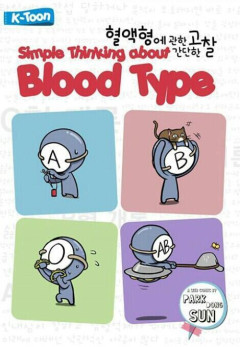
Simple Thinking About Blood Type
Tahu nggak sih kalau orang bergolongan darah A itu orang-orang yang halus, tapi kaku dan taat pada peraturan? Atau tahukah kamu kalau golongan darah B itu orang-orang yang kreatif dan bebas? Apa jadinya kalau mereka disatukan? Jangan-jangan, bisa terjadi pertengkaran! Ternyata, selain perbedaan jenis kelamin, tempat tinggal, agama, dan kondisi ekonomi, golongan darah juga bisa menentukan pe…
- Edisi
- -
- ISBN/ISSN
- 9786027742253
- Deskripsi Fisik
- 262 halaman, 20 cm
- Judul Seri
- -
- No. Panggil
- 155.2 PAR s
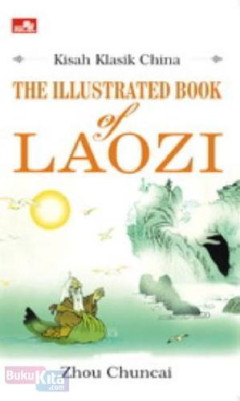
Kisah Klasik China: The Illustrated Book of Laozi
Melalui komik ini, terbukalah jalan menuju kisah kebudayaan China klasik. Inilah buku yang menceritakan kisah Laozi -orang bijak pada zaman kuno- dan Daodejing-nya dalam penjelasan yang mudah dipahami. Dengan format komik dan ilustrasi yang menarik, Anda akan lebih mudah memahami arti dan pengaruh Dao dan De tanpa kehilangan esensi pokok ajarannya.
- Edisi
- -
- ISBN/ISSN
- 9789792795806
- Deskripsi Fisik
- 226 halaman, 15x23 cm
- Judul Seri
- -
- No. Panggil
- 181.11 ZHO k
Kick Andy: Kumpulan Kisah Inspiratif 2
Buku ini berisi kisah-kisah yang pernah di tayangkan dalam acara Kick Andy di Metro TV yang dapat menjadi inspirasi dalam kehidupan. Sejak awal kehadirannya, Kick Andy langsung mencuri perhatian penonton televisi. Mengolah cerita yang biasa hadir di sekeliling kita menjadi sebuah tayangan yang inspiratif dan membangkitkan semangat baru. Kick Andy tidak hanya mengajak untuk menonton dengan hat…
- Edisi
- -
- ISBN/ISSN
- 9786028811163
- Deskripsi Fisik
- viii+280 hlm, 20,5 cm
- Judul Seri
- -
- No. Panggil
- 128 ADI k
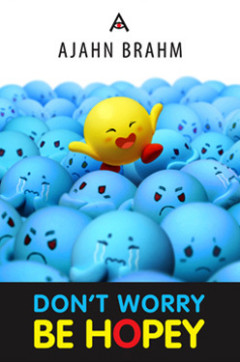
Don't Worry Be Hopey
Kegalauan adalah melihat masa depan dengan mempertimbangkan semua hal buruk yang bisa terjadi. Kecemasan tak semestinya seperti itu adalah penyakit kognitif dalam skala mewabah di dunia modern kita. Penangkalnya adalah melihat masa depan dengan mempertimbangkan segala hal baik yang bisa terjadi. Ini bahkan bisa meningkatkan kemungkinan keberhasilan. Ini menambah harapan alih-alih negativitas…
- Edisi
- -
- ISBN/ISSN
- 9786028194754
- Deskripsi Fisik
- 20,5 x 14 cm, 205 halaman, ilus.
- Judul Seri
- -
- No. Panggil
- 181.043 BRA w
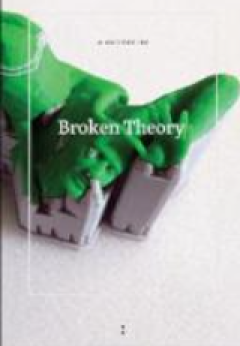
E-book Broken Theory
Broken Theory is a jettisoned collection of fragmentary writing, collected and collaged by new media artist, writer, musician, and theorist Alan Sondheim. Folding theoretical musings, text experiments, and personal confessions into a single textual flow, it examines the somatic foundations of philosophical theory and theorizing, discussing their relationships to the writer and body, and to the …
- Edisi
- -
- ISBN/ISSN
- 9781685710484
- Deskripsi Fisik
- 227 hlm
- Judul Seri
- -
- No. Panggil
- 142.7 ALA b
E-book Empty-Base Explanation
Anyone who has spent some time around children or philosophers will be famil-iar with the following situation: The child or philosopher will ask a why-questionand demand an explanation for the fact or phenomenon at hand. If lucky, onewill be able to produce an answer, albeit just to be confronted with a furtherwhy-question concerning that answer. Then, at some point of this game of why-question…
- Edisi
- -
- ISBN/ISSN
- 9783111069500
- Deskripsi Fisik
- 207 hlm
- Judul Seri
- -
- No. Panggil
- 110 KAP e
E-book Time Management
Your ability to manage your time, as much as any other practice in your career as an executive, will determine your success or failure. Time is the one indispensable and irreplaceable resource of accomplishment. It is your most precious asset. It cannot be saved, nor can it be recovered once lost. Everything you have to do requires time, and the better you use your time, the more you will accom…
- Edisi
- -
- ISBN/ISSN
- 9780814433430
- Deskripsi Fisik
- 138 hlm
- Judul Seri
- -
- No. Panggil
- 155.25 TRA t
E-book Modern French Philosophy
We have seen how, as a consequence of the Revolution and of the cold, destructive, criticism of the eighteenth century, there was a demand for constructive thought. This was a desire common not only to the Traditionalists but to De Biran and Cousin. They aimed at intellectual reconstruction. While, however, there were some who combated the principles of the Revolution, as did the Traditionalist…
- Edisi
- -
- ISBN/ISSN
- 9781419134753
- Deskripsi Fisik
- 136 hlm
- Judul Seri
- -
- No. Panggil
- 194 GUN m
E-book Stolen Legacy : Greek Philosophy is Stolen Egyptian Philosophy
The knowledge that the African continent gave civilization the Arts and Sciences, Religion and Philosophy is des- tined to produce a change in the mentality both of the White and Black people. 2. There are three persons in the drama of Greek philosophy: (a) Alexander the Great; (b) Aristotle's School and; (c) The Ancient Roman Government who are responsible for a false tradition about Africa an…
- Edisi
- -
- ISBN/ISSN
- 9781635610574
- Deskripsi Fisik
- 135 hlm
- Judul Seri
- -
- No. Panggil
- 182 JAM s
E-book Contemporary Debates in Bioethics: European Perspectives
Humans have always had the ability to influence the genetic makeup of their children. Individuals who wanted tall and attractive children, for instance, could find tall and attractive partners to reproduce with, thereby raising the probability that their progeny would be tall and attractive. However, until very recently, this power was limited. Individuals …
- Edisi
- -
- ISBN/ISSN
- 9783110571219
- Deskripsi Fisik
- 187 hlm
- Judul Seri
- -
- No. Panggil
- 170 GYN c

E-Book Sadar Penuh Hadir Utuh
Semua inspirasi berupa kalimat dalam buku 'Sadar Penuh Hadir Utuh' ini saya dapatkan secara gratis dari alam semesta. Untuk itu, silakan bagi siapa pun yang ingin mengutip sebagian atau seluruh inspirasi di buku ini. Bahkan, bila ada yang sudah membeli dan merasa sudah selesai membaca buku ini, tolong pinjamkan buku ini kepada siapa pun yang ingin membaca tapi belum membeli. Saya akan ikut be…
- Edisi
- Cet. 1
- ISBN/ISSN
- 6021036123
- Deskripsi Fisik
- xxiv, 270 hlm; 1,8 MB
- Judul Seri
- -
- No. Panggil
- 158.128 ADJ s

E-book A Dark Trace : Sigmund Freud on the Sense of Guilt
“Psychoanalysis has never claimed to provide a complete theory of human mentality in general.”1 Freud wrote these words in 1914, shortly after his break with Jung. It is indeed true that he never concerned himself with developing an all-embracing system, but rather moved from the analysis of patients to areas of special attention: repression, dreams,…
- Edisi
- -
- ISBN/ISSN
- 9789461664174
- Deskripsi Fisik
- 333 hlm
- Judul Seri
- -
- No. Panggil
- 150.195 WES a
E-book Speaking with the Dead : An Ethnography of Extrahuman Experience
Within any spiritual or religious tradition, nothing could seem more obvious than the reality of the unseen world. Gods demand attention. Spirits compel action. In a famous essay on religion’s cultural foundations, Clifford Geertz (1973, 118) wryly observed that when he asked a Balinese man who had gone into trance and performed as the goddess Rangda if the…
- Edisi
- -
- ISBN/ISSN
- 9781685711733
- Deskripsi Fisik
- 191 hlm
- Judul Seri
- -
- No. Panggil
- 133.9 TOM s
E-book Coping : A Philosophical Guide
You have probably heard Reinhold Niebuhr’s serenity prayer in some version or other: ‘God, grant me the serenity to accept the things I cannot change, the courage to change the things I can, and the wisdom to know the difference.’ It’s clever and touching, but there is a bit of a false dichotomy. There is often very little we can do to make changes to the world, …
- Edisi
- -
- ISBN/ISSN
- 9781800642805
- Deskripsi Fisik
- 175 hlm
- Judul Seri
- -
- No. Panggil
- 170 BOV c
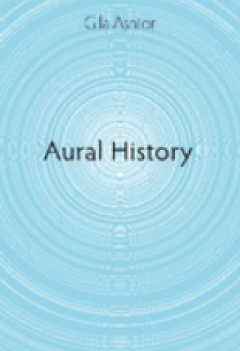
E-book Aural History
Aural History is an anti-memoir memoir of encountering devastating grief that uses experimental storytelling to recreate the winding, fractured path of loss and transformation.Written by a thirty-something psychotherapist and queer theorist, Aural History is structured as a sequence of three sections that each use different narrative styles to represent a distinctive stage in the protagonist’…
- Edisi
- -
- ISBN/ISSN
- 9781950192687
- Deskripsi Fisik
- 325 hlm
- Judul Seri
- -
- No. Panggil
- 150.195 ASH a
E-book Plotinus on Beauty : Beauty as Illuminated Unity in Multiplicity
Theredoesnotseemtobeanyseriousreasontosupposeasignificantevo-lution in Plotinus’ philosophy. Even leaving aside the problematic nature ofdevelopmentaltheoriesfromahermeneuticalperspective,thereexistssomepositiveevidenceforconsistencyinPlotinus’thought.InhisLifeof Plotinus,Porphyrygivesatleastfourreasonsforadoptingaunitaryperspective.Thefirsttwoargumentsareratherindirect:First,Plotinusbegant…
- Edisi
- -
- ISBN/ISSN
- 9789004510203
- Deskripsi Fisik
- 220 hlm
- Judul Seri
- -
- No. Panggil
- 184 GAL p
E-book The Things That Really Matter : Philosophical conversations on the cor…
There are many reasons why I liked Mary so much, as a person, a writer and a philosopher. I liked her for her wit, her warmth, her level- headedness and her moral clarity; her ability to steer clear of all unnecessary technicalities and cut straight to the chase, focusing on the big picture rather than getting mired in the details of any particu…
- Edisi
- -
- ISBN/ISSN
- 9781800082175
- Deskripsi Fisik
- 307 hlm
- Judul Seri
- -
- No. Panggil
- 170 HAU t

E-book Kant on Love
What did Immanuel Kant really think about love? This book is the first in-depth study of the concept of love in Kant`s philosophy. It argues that love is much more important to Kant than previously thought, and that understanding love is actually essential for Kantian ethical life. Perhaps surprisingly, for Kant, love permeates human existence from the strongest impulses of nature to the highes…
- Edisi
- -
- ISBN/ISSN
- 9783110544978
- Deskripsi Fisik
- 199 hlm
- Judul Seri
- -
- No. Panggil
- 170 RIN k

E-book Brain Computations and Connectivity
The subject of this book is how the brain works. In order to understand this, it is essential toknowwhatis computed by different brain systems; andhowthe computations are performed.The aim of this book is to elucidate what is computed in different brain systems; and todescribe current computational approaches and models of how each of these brain systemscomputes. Understanding the brain in this…
- Edisi
- -
- ISBN/ISSN
- 9780198887911
- Deskripsi Fisik
- 1174 hlm
- Judul Seri
- -
- No. Panggil
- 152 ROL b
E-book The Secret to Teen Power
The truth is, THE SECRET helps bring riches to the poor, abundance to the hungry, peace to the war-torn, wellness to the unhealthy. But it can also help make dreams come true for you. Maybe you don’t think you deserve it. But you do. And if you can dream it, you have the power to make it happen. Seriously. Now, it might seem obvious, but the hardest part about living your dream is knowing jus…
- Edisi
- -
- ISBN/ISSN
- 9781847386939
- Deskripsi Fisik
- 169 hlm
- Judul Seri
- -
- No. Panggil
- 155.5 HAR t

E-book The Insectile and the Deconstruction of the Non/Human
The scene of fasciation in the novel, as such, spreads beyond its most compelling and tragic evocation, illustrating Wildeve’s orientation towards Eustacia and vice versa. The subsection titled ‘Fascination’ begins with the ‘system’ of Clym’s face and figure, moving through a series of encounters and settings in which the phenomenon takes hold or e…
- Edisi
- -
- ISBN/ISSN
- 9781032345505
- Deskripsi Fisik
- 209 hlm
- Judul Seri
- -
- No. Panggil
- 190 COL t
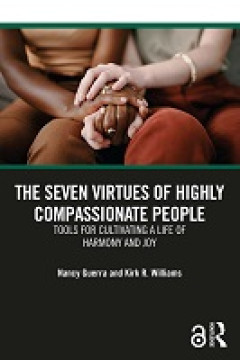
E-book The Seven Virtues of Highly Compassionate People: Tools for Cultivatin…
What are the practical implications of truly caring about yourself and others, of approaching each day with an open mind, an open heart, and a desire to reduce the suffering of all living beings? Can we learn compassion as a way of life, as an antidote to violence and cruelty? In The Seven Virtues of Highly Compassionate People, social scientists Nancy Guerra and Kirk R. Williams provide easy-t…
- Edisi
- -
- ISBN/ISSN
- 9781032480107
- Deskripsi Fisik
- 195 halaman
- Judul Seri
- -
- No. Panggil
- 150.1 GUE t

E-book Echoes of No Thing: Thinking between Heidegger and Dogen
ohn Cage’s 4'33" remains an echo, a repetition of the space of silence and all silence entails. Performed for the first time by pianist David Tudor in 1954 during a piano recital in Wood-stock, New York, it asks of the performer to sit at the piano, and to “perform” a piece of music. Tudor interpreted the instruc-tions Cage had written and sat at t…
- Edisi
- -
- ISBN/ISSN
- 9781950192014
- Deskripsi Fisik
- 212 hlm
- Judul Seri
- -
- No. Panggil
- 181.1 JEN e
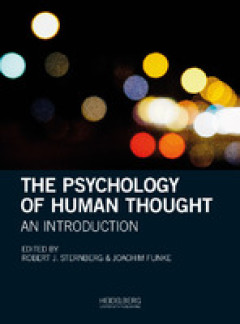
E-book The Psychology of Human Thought: An Introduction
The “Psychology of Human Thought” is an “open access” collection of peer-reviewed chapters from all areas of higher cognitive processes. The book is intended to be used as a textbook in courses on higher process, complex cognition, human thought, and related courses. Chapters include concept acquisition, knowledge representation, inductive and deductive reasoning, problem solving, metac…
- Edisi
- -
- ISBN/ISSN
- 9783947732340
- Deskripsi Fisik
- 418 halaman, ilus.
- Judul Seri
- -
- No. Panggil
- 150.1 STE t
E-book Pray for Brother Alexander
When a victor asks you to pray for him, it means that he of-fers you his victory. “Can you do anything with this victory?” he seems to say. It is true, not anyone can triumph over his own vic-tory and feel as deep as brother Alexander that he has nothing to do with it. At his own level, however, a common man offers various victories on the market, victories that he cannot alway…
- Edisi
- -
- ISBN/ISSN
- 9781947447530
- Deskripsi Fisik
- 152 hlm
- Judul Seri
- edieval Western Philosoph
- No. Panggil
- 189 NOI p

E-book Controversy over the Existence of the World
Our next task is to carry out formal-ontological analyses on the one hand, and material-ontological1 ones on the other, that are connected to our main problem. We begin with the basic conviction that an entity of arbitrary form and material deter-mination cannot exist in an altogether arbitrary manner, but rather that necessary interconnections yet to be discovered obtain between an existent’…
- Edisi
- Vol. 2
- ISBN/ISSN
- 9783653025040
- Deskripsi Fisik
- 776 hlm
- Judul Seri
- -
- No. Panggil
- 111 ING c
 Karya Umum
Karya Umum  Filsafat
Filsafat  Agama
Agama  Ilmu-ilmu Sosial
Ilmu-ilmu Sosial  Bahasa
Bahasa  Ilmu-ilmu Murni
Ilmu-ilmu Murni  Ilmu-ilmu Terapan
Ilmu-ilmu Terapan  Kesenian, Hiburan, dan Olahraga
Kesenian, Hiburan, dan Olahraga  Kesusastraan
Kesusastraan  Geografi dan Sejarah
Geografi dan Sejarah